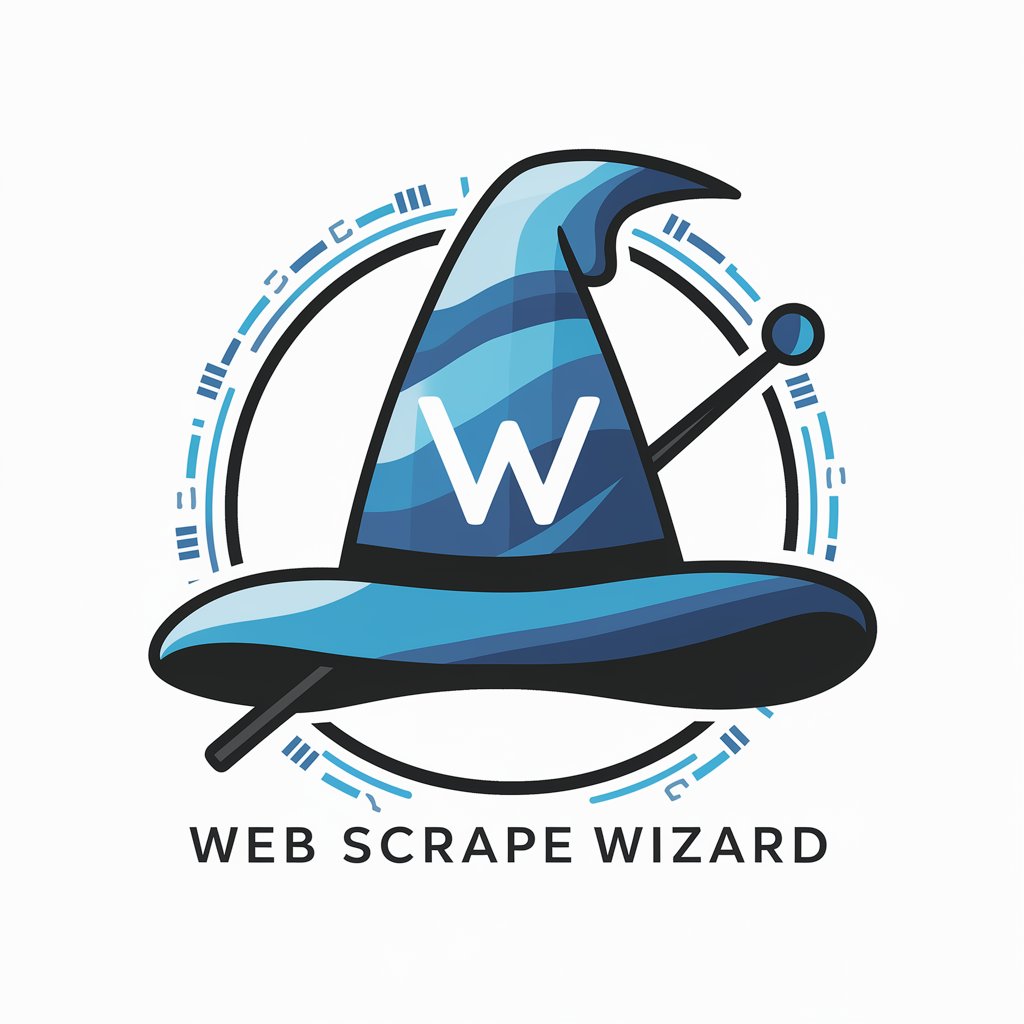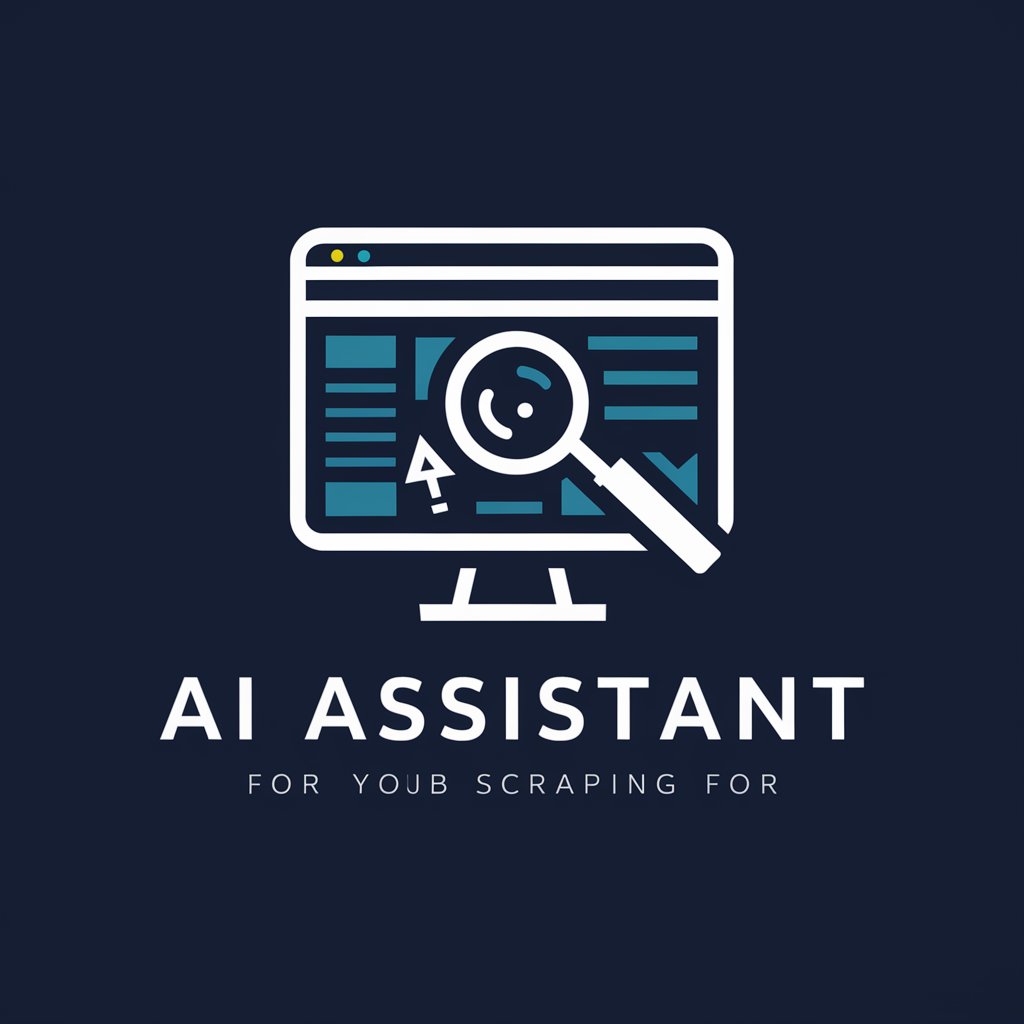
Web Scraping Wizard - Web Scraping Guidance
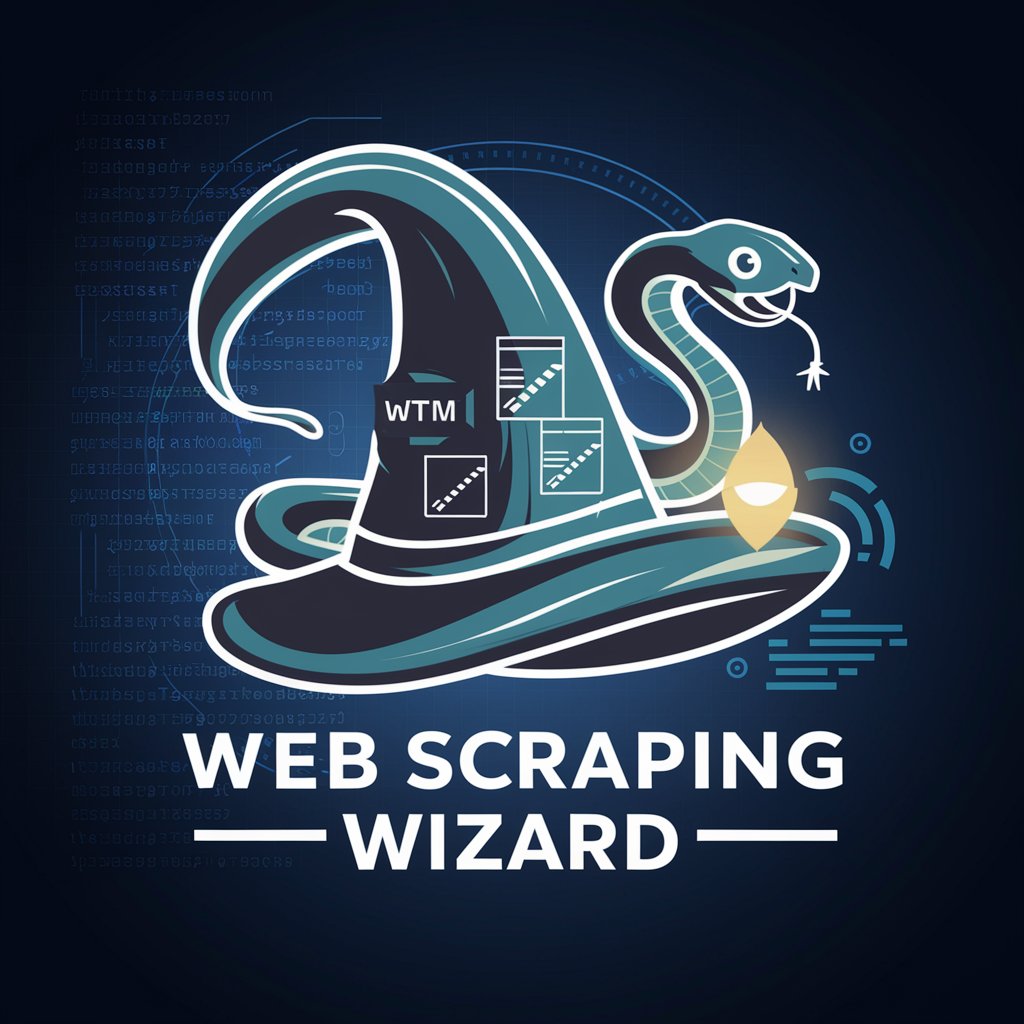
Welcome! Ready to scrape the web with Python?
AI-powered Web Scraping Simplified
Can you guide me on scraping text and images from a website using BeautifulSoup and Requests?
How do I extract and save images from a webpage using Scrapy in Python?
What's the best way to visualize scraped data, combining both text and images?
Could you provide a step-by-step tutorial on using Python for comprehensive web scraping tasks?
Get Embed Code
Introduction to Web Scraping Wizard
Web Scraping Wizard is a specialized tool designed to assist Python programmers in the task of web scraping - the process of extracting data from websites. This tool offers comprehensive guidance on using Python libraries such as BeautifulSoup, Requests, and Scrapy to fetch both text and images from web pages. It provides step-by-step instructions for scraping tasks, from simple text extraction to more complex operations like handling dynamic content loaded with JavaScript. Additionally, Web Scraping Wizard aids users in visualizing the scraped data, integrating both textual and visual content into coherent formats for analysis or presentation purposes. For example, a user might use Web Scraping Wizard to extract news articles from a website and then visualize the frequency of specific terms mentioned in these articles. Powered by ChatGPT-4o。

Main Functions of Web Scraping Wizard
Text Content Extraction
Example
Extracting news article contents from an online newspaper.
Scenario
A Python developer uses BeautifulSoup and Requests to scrape the latest news articles from a newspaper website, storing the extracted information in a structured format for further analysis or archiving.
Image Content Fetching
Example
Downloading images from a digital art gallery.
Scenario
Utilizing Scrapy, a developer creates a spider to navigate through a digital art gallery website, downloading each piece of art along with its metadata for a machine learning project.
Data Visualization
Example
Visualizing the distribution of keywords in scraped articles.
Scenario
After scraping a large number of articles on a specific topic, a developer uses Python libraries like Matplotlib or Seaborn to create visualizations that highlight the frequency and distribution of key terms, aiding in content analysis.
Handling Dynamic Content
Example
Scraping data from a webpage that loads content dynamically with JavaScript.
Scenario
A developer employs Selenium or Pyppeteer alongside BeautifulSoup to interact with and scrape a website that loads its content dynamically, ensuring accurate data extraction from complex web applications.
Ideal Users of Web Scraping Wizard Services
Python Developers
Programmers with a basic understanding of Python who are looking to extract data from the web efficiently. They benefit from the Wizard's guidance on using specific libraries and handling various scraping challenges.
Data Analysts and Scientists
Professionals in data analysis and science fields who require large datasets from the internet for analysis, prediction models, or insights. The tool's emphasis on structured data extraction and visualization aids in their projects.
Digital Marketers
Digital marketing professionals seeking to monitor competitors' websites, track market trends, or analyze customer feedback across different online platforms. Web Scraping Wizard offers them techniques to gather and analyze this information efficiently.
Academic Researchers
Researchers in various academic fields who need to collect data from multiple sources on the web for studies, papers, or experiments. The tool simplifies the process of fetching and organizing data from diverse web resources.

Guidelines for Using Web Scraping Wizard
Start with YesChat
Begin your journey at yeschat.ai to explore Web Scraping Wizard for free, without the need for signing up or subscribing to ChatGPT Plus.
Identify Your Data Needs
Clarify what data you need to extract from websites. This could be text, images, or both, from various pages or sections.
Select Your Tools
Choose Python libraries such as BeautifulSoup, Requests, or Scrapy based on your project's complexity and requirements.
Develop Your Script
Write your scraping script, employing the selected tools to navigate web pages, extract desired data, and handle potential errors.
Visualize and Analyze
Use Python libraries like Matplotlib or Pandas for visualizing the scraped data, helping in the analysis or further processing.
Try other advanced and practical GPTs
Web Scraping Wizard
Automate Data Extraction with AI
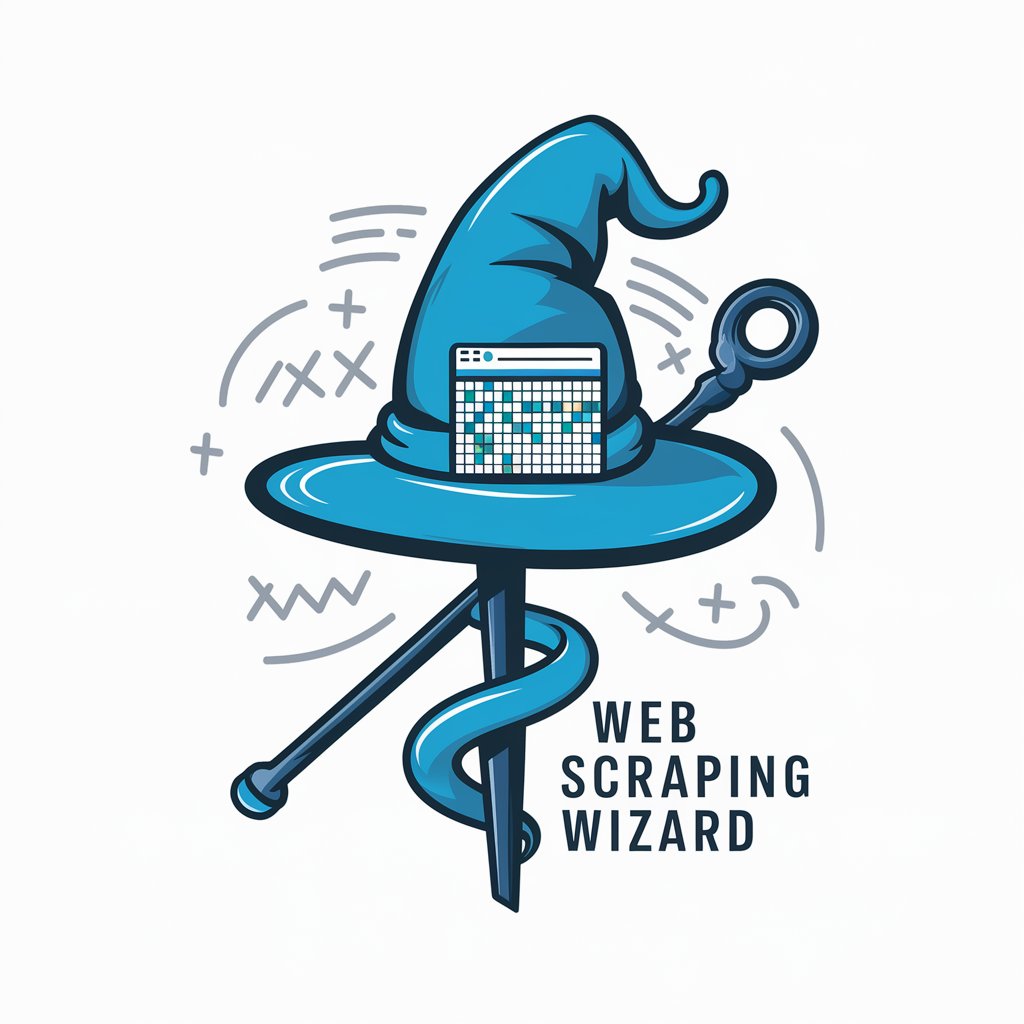
Web Scraping Wizardry
Harness AI to Extract and Process Web Data
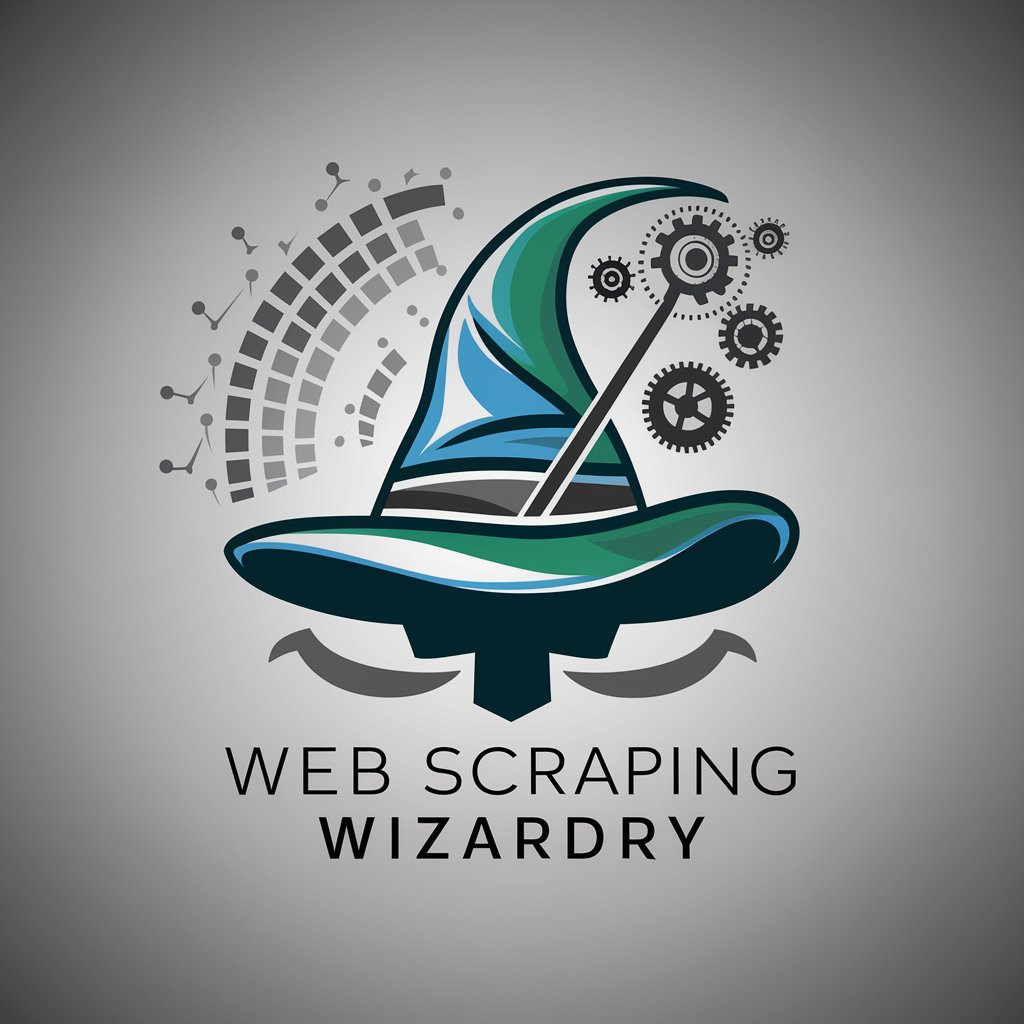
Web Scraping Entrepreneur
Harness AI for Smart Web Scraping
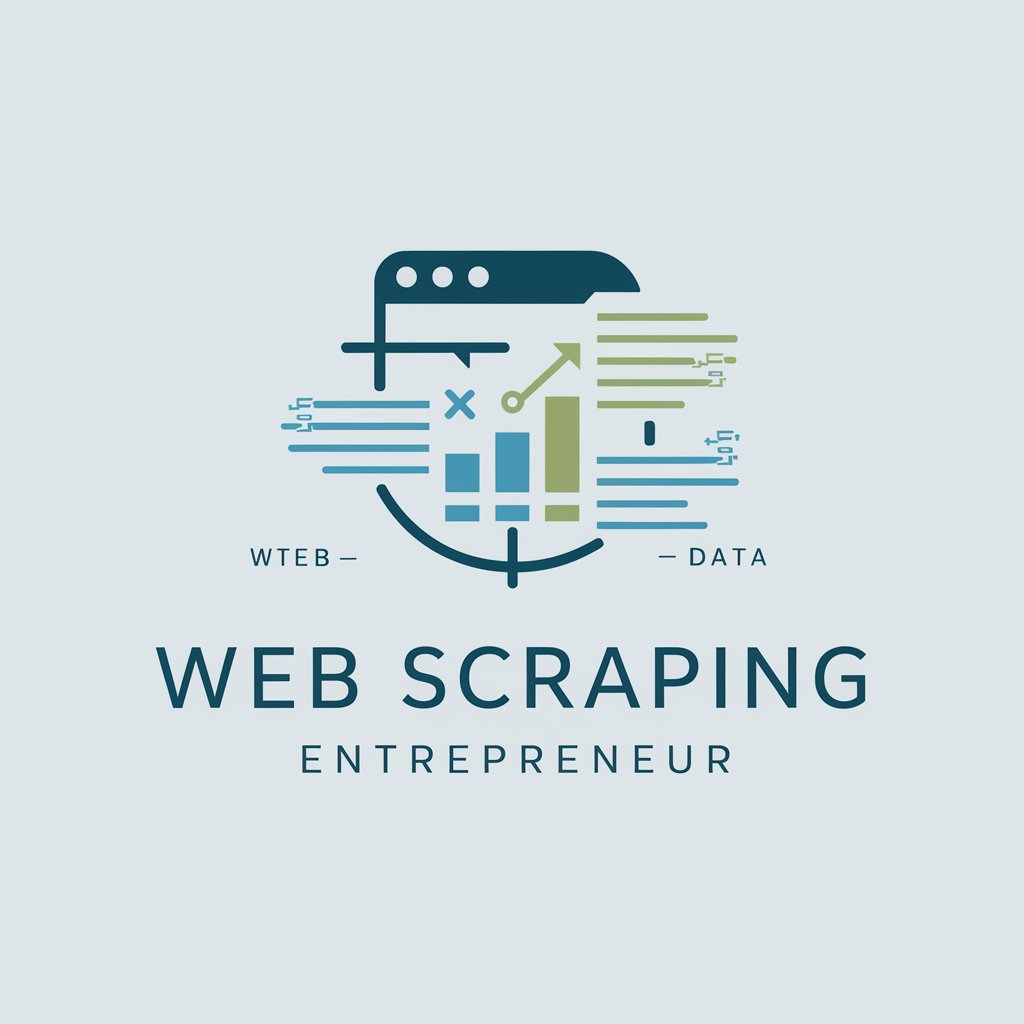
Web Scraping Wizard
AI-driven insights from the web

Web Scraping for Marketing
Harness AI for Strategic Market Insights
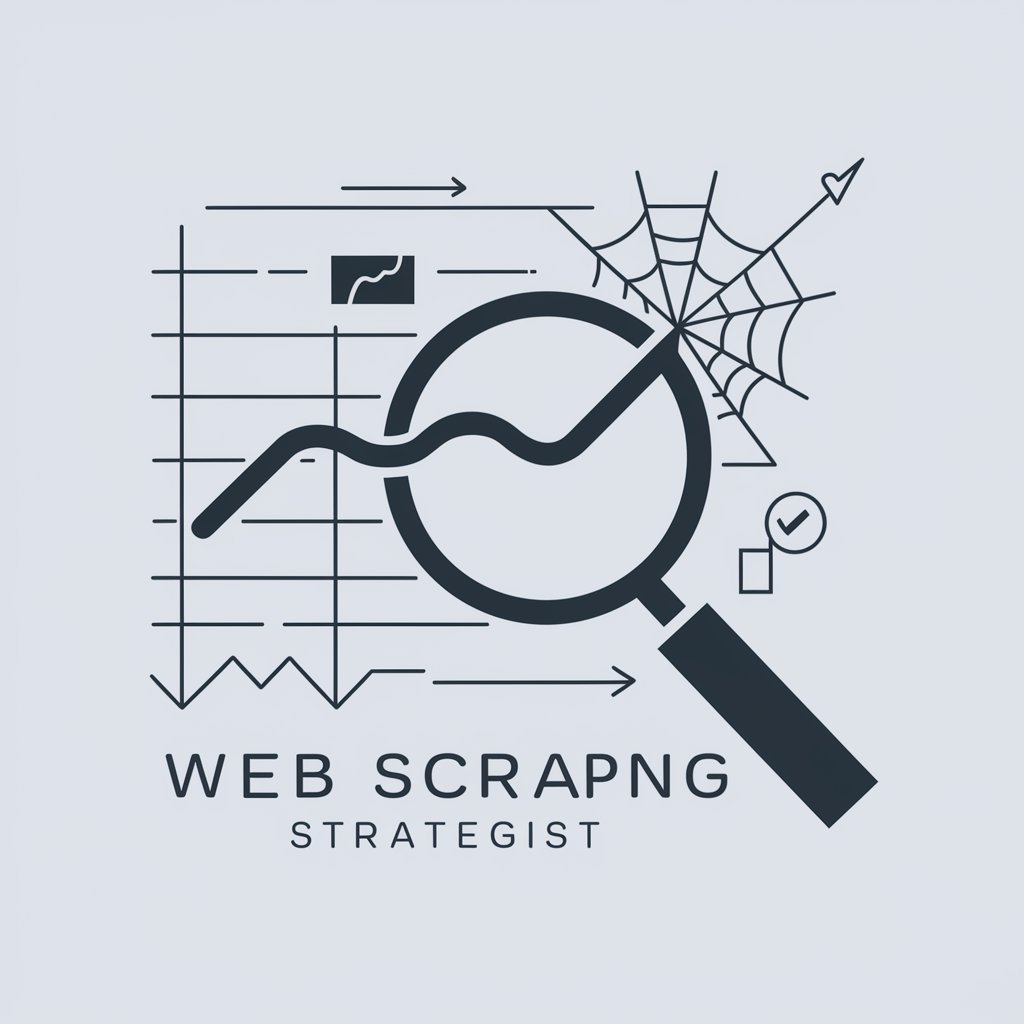
Web Scraping Travel Treasures
AI-powered travel data at your fingertips
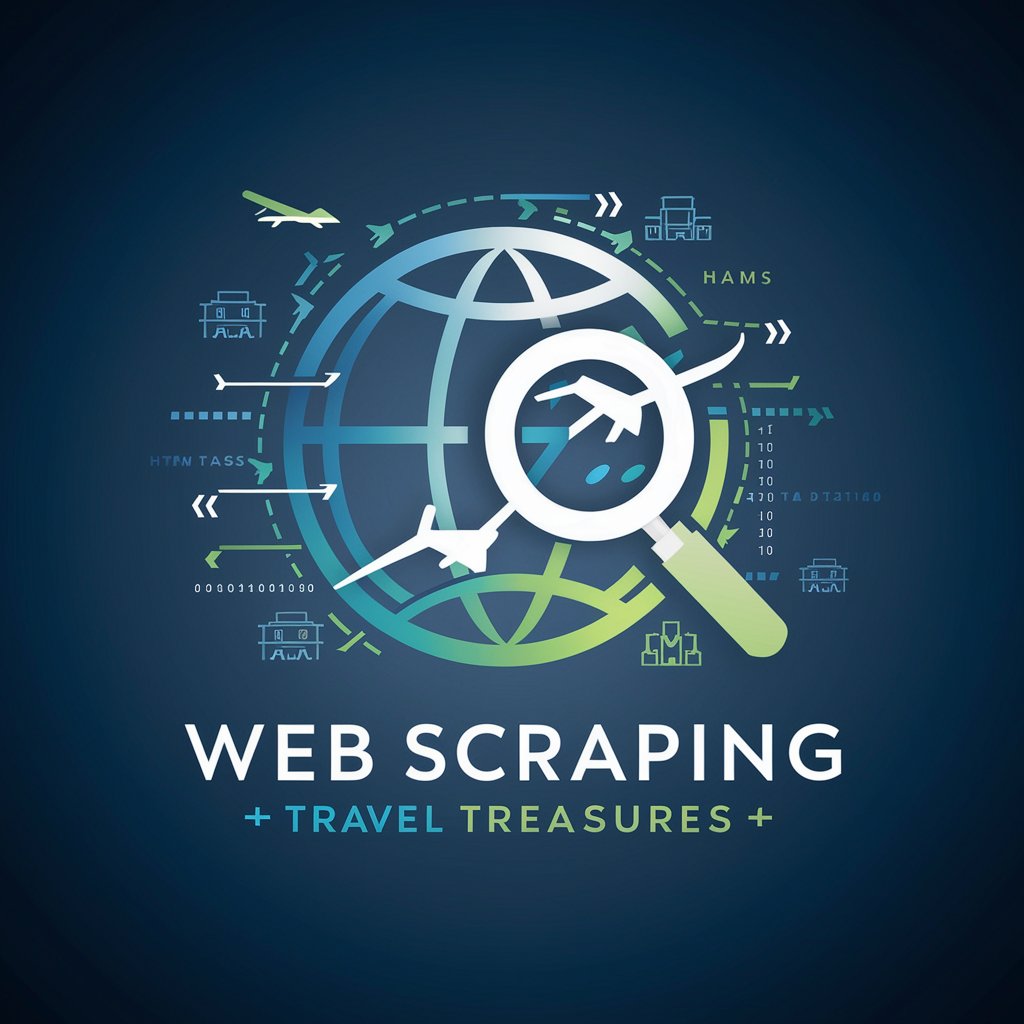
Web-Scraping-SC
Empower your strategy with AI-driven insights
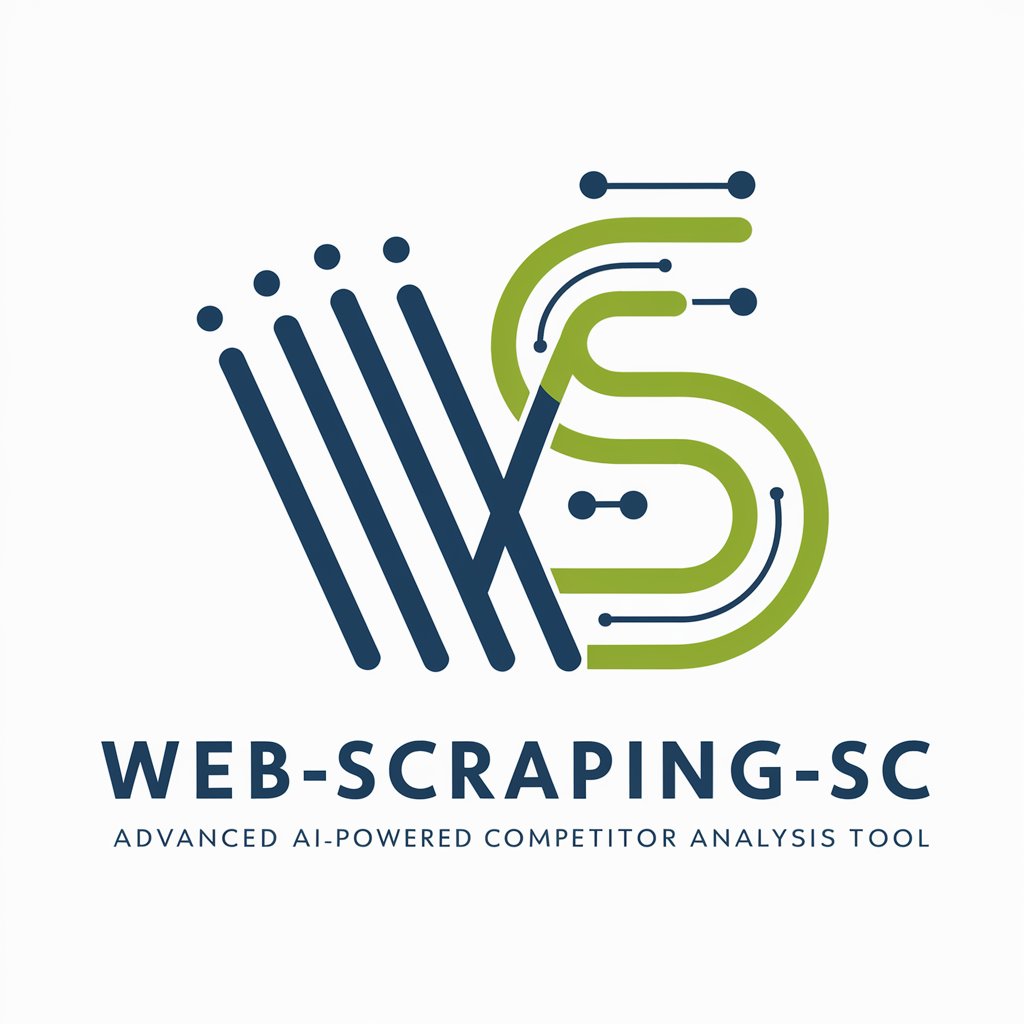
Web Scraping Wizard
Elevate Data Extraction with AI-Powered Insights
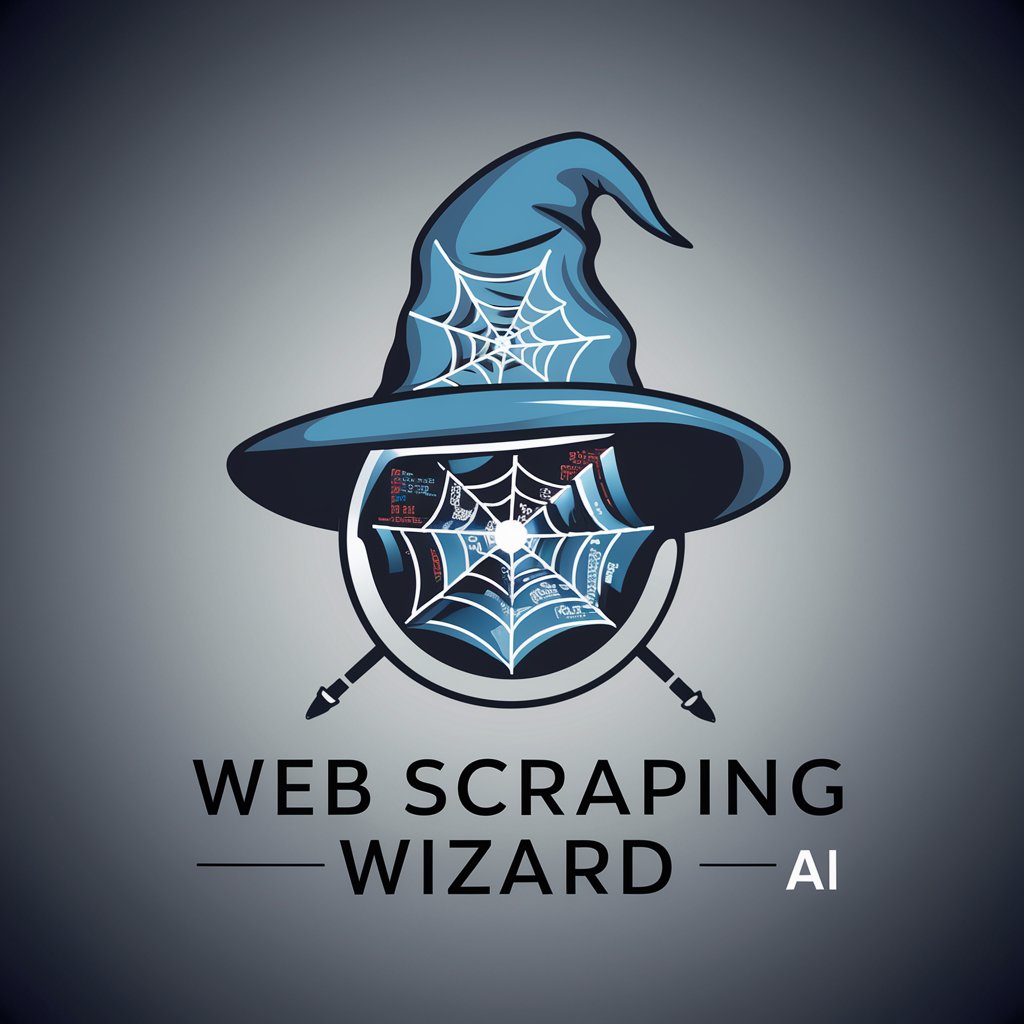
Web Scraper - Scraping Ant
Unleash AI-powered Web Scraping Capabilities
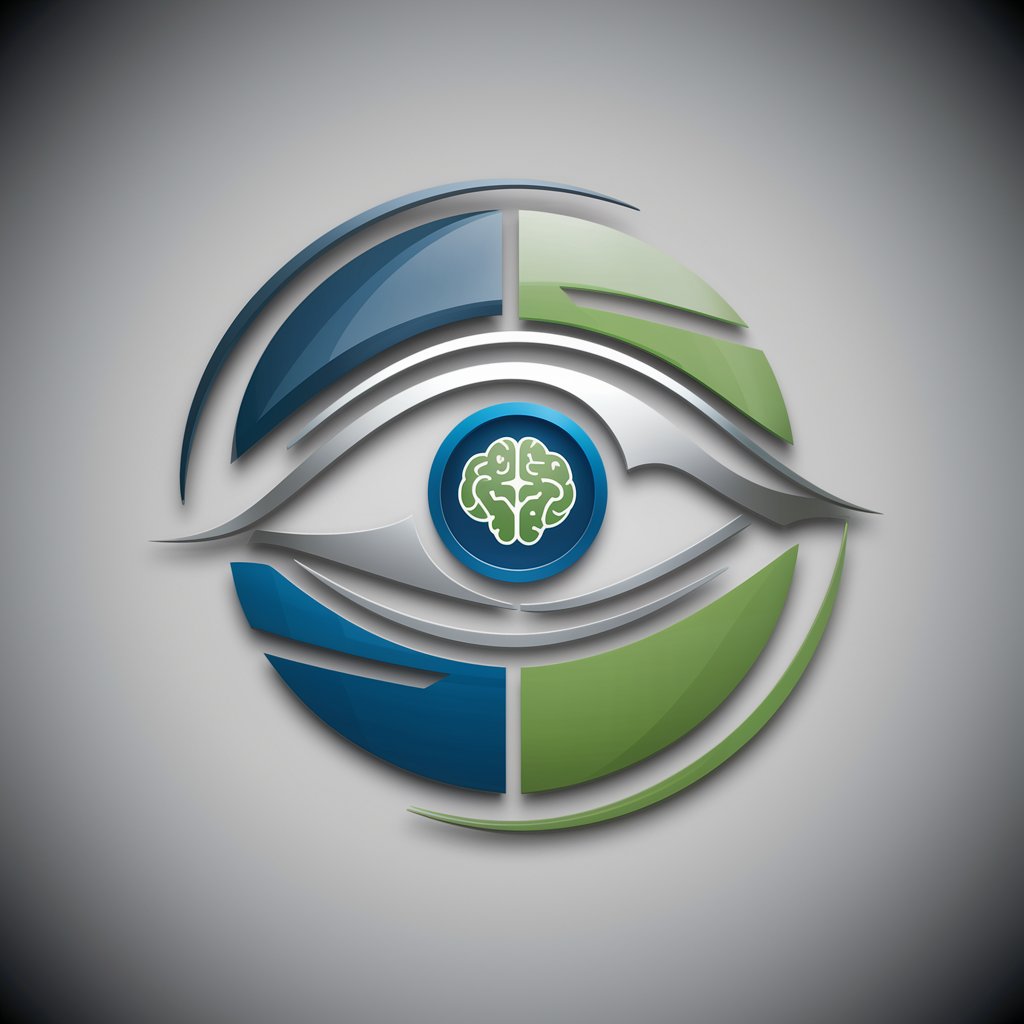
Code Commander
Empowering Development with AI

Nanoparticle Drug Formulation Optimizer
Optimize Drug Delivery with AI

Drug Discovery Assistant
Revolutionizing Drug Discovery with AI

Frequently Asked Questions about Web Scraping Wizard
Can Web Scraping Wizard extract data from any website?
While Web Scraping Wizard provides guidance on extracting data from many websites, restrictions like JavaScript-heavy sites or those with anti-scraping measures may require more advanced techniques or tools.
Is programming knowledge necessary to use Web Scraping Wizard?
Yes, a basic understanding of Python is necessary to effectively utilize Web Scraping Wizard, as it involves writing scripts using Python libraries.
How does Web Scraping Wizard handle dynamic websites?
For dynamic websites, Web Scraping Wizard recommends using Selenium or Scrapy with middleware to interact with JavaScript elements and extract data as it loads.
Can I scrape images with Web Scraping Wizard?
Yes, Web Scraping Wizard offers guidance on using Python libraries to scrape images, including handling the download and storage of image files.
Is there a limit to the amount of data I can scrape using Web Scraping Wizard?
There's no set limit by Web Scraping Wizard itself, but be mindful of the target website's terms of service and data usage policies to avoid legal issues.

